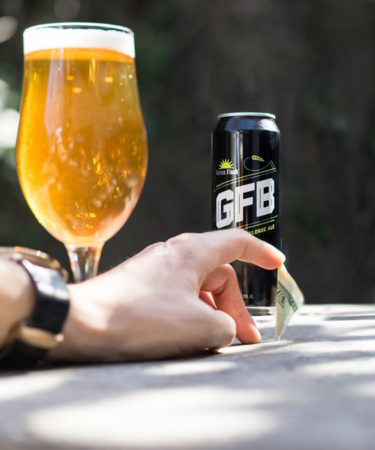The Brewers Association released its annual report this week describing 2017 data on growth in the U.S. craft brewing industry. The report touts growth numbers like:
- 6,300+ breweries operating in the U.S., an increase of 16 percent over 2016 (98 percent of which are craft)
- 12.7 percent market share by volume claimed by craft brewers
- 25.4 million barrels of beer produced by craft brewers (5 percent rise in volume over 2016)
- $26 billion value in craft beer retail (up 8 percent from 2016)
- 135,000 jobs provided by craft brewing companies
But what the BA doesn’t stress is that beer consumption as whole is dropping, with the total beer market down 1 percent in 2017. Breweries are closing — 165 in 2017, to be exact — nearly twice as many as the 97 closings in 2016 (an increase of 70 percent).
Regional brewers are being squeezed out of the market, as we were reminded once again this week with an announcement from Green Flash, which shut down its Virginia Beach brewery after only one year in operation. The craft brewer also pulled its distribution out of 10 additional states, after pulling out of 32 states last year.
Don't Miss A Drop
Get the latest in beer, wine, and cocktail culture sent straight to your inbox.“Green Flash was recently ranked by the BA as the 43rd largest craft brewery in the U.S.,” Brewbound notes, making this all the more palpable. In the last five years, 483 breweries have gone out of business, a third of them shuttering last year.
This exemplifies the current craft beer paradox: The most successful craft brewers are failing to stay afloat.
As Bart Watson, BA chief economist, said in a press release, “Growth for the craft brewing industry is adapting to the new realities of a mature market landscape,” and that “craft brewer performance was more mixed than in recent years, with those relying on the broadest distribution facing the most pressure.”
The BA’s focus on independence as the craft beer industry grows is important. But we’d like to see its efforts steer away from defining “independence,” and toward supporting it. As an association and an industry, the BA and its allies need to work together to figure out how to keep regional craft brewers afloat.
The craft beer growth spurt is over. It made it through puberty. Now, it’s time to mature.
Anheuser-Busch Heir Billy Busch Charged With Assaulting a Sixth Grader
AB InBev may be pushing small and independent craft brewers off the shelves, but AB heir, Billy Busch, got a little more personal when he allegedly bloodied a child’s nose at a basketball game at his son’s school.
According to a St. Louis newspaper, Riverfront Times, Busch, who is the great grandson of Anheuser-Busch co-founder, Adolphus Busch, is facing an assault charge for “allegedly manhandling a sixth grader at his son’s school.” The incident occurred in November 2017, after Busch’s 11-year-old son was bullied by another boy and Busch took aggressive measures to stop it.
A police report says that “Mr. Busch pushed [the boy] into a wall at the base of a stairwell resulting in [the boy] hitting the back of his head against the wall. At that time, [the boy’s] nose began to bleed.” Referring to video footage, the police report continues, “Busch is seen grabbing [the boy] once more and forcing him backwards out of the gymnasium into the lobby. At this point, [the boy] appears to take a swing at Busch in an effort to get away. Busch is seen pushing [the boy] backwards and pinning him against a wall.”
Interestingly, Busch has a history of alleged aggression. According to Riverfront Times, in 1981 he bit off another man’s earlobe during a bar fight. The following year, he was charged with assault for reaching through a drive-thru window and punching a worker in the throat.
Busch managed to escape the charges in both of these cases. We believe repercussions are definitely needed after beating up a child.
And by the way, Busch: Kräftig is not going to happen.
